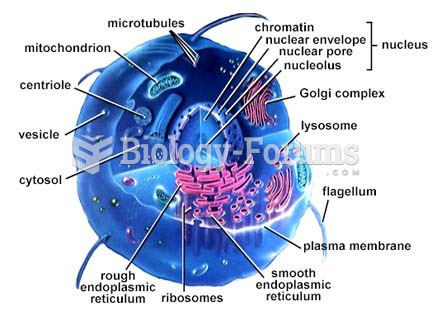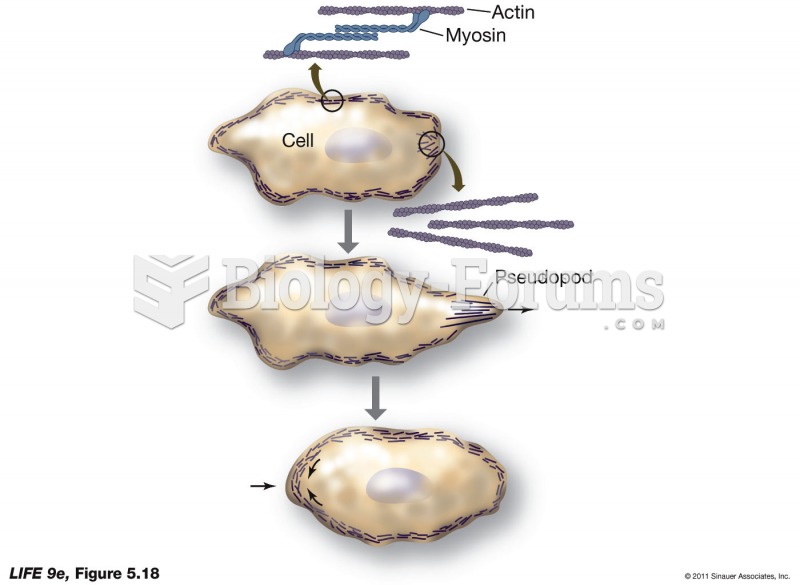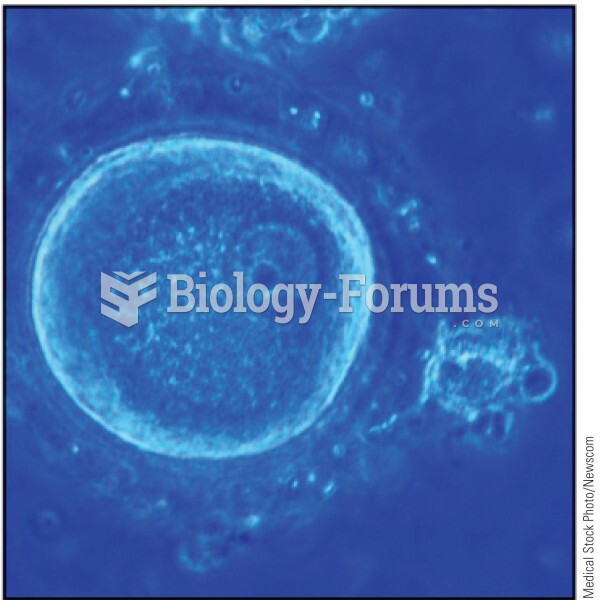|
|
|
About 600,000 particles of skin are shed every hour by each human. If you live to age 70 years, you have shed 105 pounds of dead skin.
Pubic lice (crabs) are usually spread through sexual contact. You cannot catch them by using a public toilet.
More than 30% of American adults, and about 12% of children utilize health care approaches that were developed outside of conventional medicine.
Cancer has been around as long as humankind, but only in the second half of the twentieth century did the number of cancer cases explode.
ACTH levels are normally highest in the early morning (between 6 and 8 A.M.) and lowest in the evening (between 6 and 11 P.M.). Therefore, a doctor who suspects abnormal levels looks for low ACTH in the morning and high ACTH in the evening.







